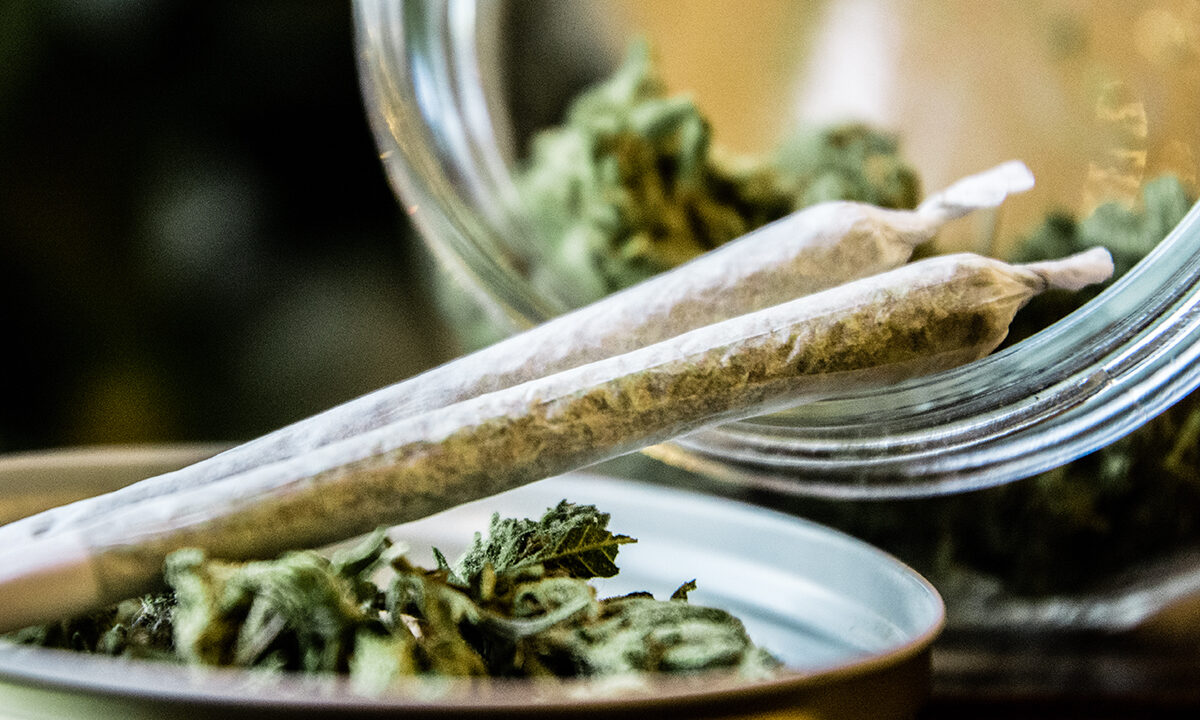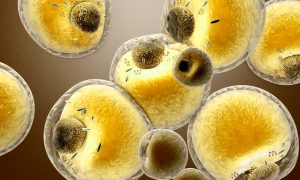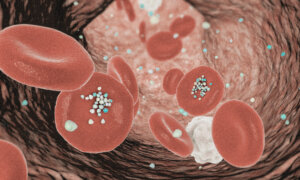Cannabis users with addiction may face a higher risk of psychosis because of elevated dopamine levels in the brain, according to a new study.
The study, recently published in JAMA Psychiatry, found that people who have cannabis use disorder (CUD) tended to have a more active substantia nigra and ventral tegmental area (SN/VTA) region in the brain. Participants included 61 people who reported early psychotic symptoms—26 had cannabis use disorder while 35 did not.
SN/VTA is a major dopamine-producing site in the brain, and greater SN/VTA activity is often an indicator of high dopamine levels as well as psychosis risk.
While high levels of available dopamine in the brain can enhance mood and motivation, too much dopamine may produce symptoms that approximate those of schizophrenia.
Researchers detected higher dopamine activity in SN/VTA by using neuromelanin-sensitive magnetic resonance imaging (neuromelanin-MRI). Neuromelanin is an indicator of dopamine activity.
“People with CUD have a higher neuromelanin-MRI signal in brain areas associated with the expression of psychosis. This might explain how cannabis affects psychotic symptoms,” the researchers wrote.
CUD Linked to More Dopamine Activity
People who had more severe CUD symptoms tended to have increased neuromelanin levels in the brain.
Other studies have shown that delta-9-tetrahydrocannabinol (THC), the chemical in cannabis responsible for creating its euphoric and pleasurable sensations, can increase dopamine levels in the brain.
Researchers said that findings are still preliminary and nonconclusive.
“We need to be careful about drawing conclusions, especially when it comes to the relationship between neuromelanin, cannabis use, and psychosis,” the researchers noted.
Neuromelanin is a protective chemical that is released when dopamine breaks down in the brain. It can attach itself to metals and harmful substances in the brain, acting as a cleaner and neutralizing these damaging substances, thus protecting the brain.
Because of its potential beneficial properties, higher levels of neuromelanin may not be a bad thing, the researchers suggest.
Experts Urge Caution
Cannabis can make things worse for patients already dealing with psychosis, Dr. Jeffrey Ditzell, CEO and lead psychiatrist at Dr. Ditzell Psychiatry PLLC, told The Epoch Times.
“It can blur the line between what’s real and what’s not, making it harder for them to cope,” he said. “This can definitely exacerbate symptoms, hinder recovery and increase likelihood of relapse or hospitalization.”
While some users believe cannabis helps manage anxiety or restlessness in the short term, Ditzell cautioned that “in the long run, it often destabilizes things.”
There does appear to be a connection between cannabis use and symptoms of psychosis or a diagnosis of schizophrenia, Alison Tarlow, a licensed clinical psychologist, certified addictions professional, and chief clinical officer at Boca Recovery Center in Florida, told The Epoch Times.
“However, it is difficult to state causality,” she said. “Instead, what we know is that individuals who are already genetically predisposed to mental health symptoms such as psychosis or schizophrenia may have an increased likelihood of experiencing symptoms of psychosis and the potential development of schizophrenia that could be activated by the use of cannabis.”
This risk is particularly pronounced in adolescents who use cannabis products while their brains are still developing, Tarlow added.
Tarlow encourages people to “strongly consider” their overall health—both physical and mental, before making decisions to use cannabis or any other drugs.
“It is not uncommon for people to experience anxiety, depression, lethargy, and other symptoms as a result of using cannabis,” she said. “And if you have any previous mental health issues or prior diagnoses, you should be aware of the impact that cannabis can have on your being.”
Treatment Options Available
While CUD and psychosis are a challenging combination that “needs careful management,” recovery from psychosis is possible, Ditzell said.
Effective treatments are available, such as neuroleptics, which are anti-psychotics that work by blocking dopamine receptors in the brain, and nondrug treatments such as cognitive behavioral therapy, which help patients improve their coping skills, reframe their thinking, and encourage them to take an active role in their recovery.
Another option is family therapy, which can be a “powerful tool” helping patients living with psychosis, Ditzell noted.
“When family members are part of the treatment process,” he said, “they can help the patient reinforce positive behaviors, remind the patient of their treatment goals, and encourage adherence to medication and prescribed treatment.”













